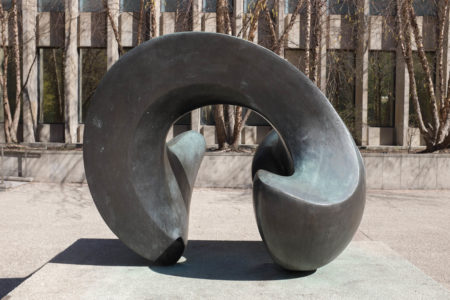Author: Milan
Markham Street, Toronto
Peeling white bark
Sculpture near city hall
Two PhD packages to complete
Today was the end of term party in the political science department. I showed up in a suit in part to convey to any of my committee members present that I am focused on getting the dissertation done. *
I have promised my supervisor two big packages of work.
First — The output from the process of digitizing interview notes and coding them in NVivo. This will take a lot more tedious data entry, but this is the main empirical contribution of the project and will be the basis for the analysis.
Second — Drafts of the four thematic chapters, on political opportunity, repertoires, mobilizing structures, and framing. This is where three things come together: my experience with the climate activist and divestment movements, the theoretical framework of contentious politics (where the chapter labels come from), and the specific information I have collected from research subjects.
I’m not going to estimate when these packages will be done, but by that point most of the labour required for the PhD will be complete. I will need to incorporate and respond to comments from my committee, as well as write an introduction and conclusion, but the core of the dissertation will be in place.
* Part of me rebels at the idea that people will use information about how you appear in front of them to judge something essentially unrelated (the progress of a writing project), but an error of mine demonstrates how thoroughly our reasoning depends on present sensory inputs, even when seeking to approach a situation rationally. At the gathering, I spoke at length with a woman who I assumed was a PhD student, given her appearance, and given that with 200 students in the program at once there are many who I don’t know. Only just now, scrolling down the faculty directory to find the name of someone else, I went past the photo I took of the woman. At that photo session which I did for the department, I asked her at the outset if she was a PhD student and now remember being told she was faculty. Beyond a vague familiarity, I had no memory of her during the party, and only remembered the photo session meeting when prompted by a random external input.
Old City Hall tower, Toronto
Self-denial as a virtue
Perhaps a central virtue for the world of the future will be self-denial, and specifically channeling covetous feelings toward sustainable ends: not collecting 10,000 Barbie dolls or flying into low Earth orbit, but doing instead things that will enrich and distinguish you in the community without heavy ecological effects, like writing, making art, and theatre.
The importance of self-denial extends beyond avoiding the appetites which John Borrows described in “Seven Generations, Seven Teachings: Ending the Indian Act”: “Our windigo stories strongly teach the consequences of self-destructive cannibalistic consumption. Individuals and entire communities can be eaten up by those possessed by unrestrained appetites”
For instance, self-denial is central to data and network security: splitting up information into compartments, designing trust systems that don’t rely on the assumption that people will act well or that one person should have all the control, even choosing passwords too complex to remember yourself.
We may need to deny impulses of all sorts: the desire to travel, the desire to maintain close personal relations through in-person contact, the spendour and variety of what our erosive capitalist society provides. I considered “corrosive” to take advantage of the consonance, but “erosive” is really the right word: we have a global system of production and consumption that eats away at the material adjacent to it, breaking it apart and moving it like a riverbank getting eroded.
We need to learn to live so that erosive process comes into balance with what the planet can survive, and crucially do so through a global project of decarbonization with the necessary scope and ambition to keep warning anywhere near 2 ˚C above pre-industrial levels.
Trinity Bellwoods park gate and streetcar
Mica Prazak on Newstalk ZB
My brother Mica was recently on the radio in New Zealand, describing his teaching experience and plans to live and teach in Aukland for at least two years.







